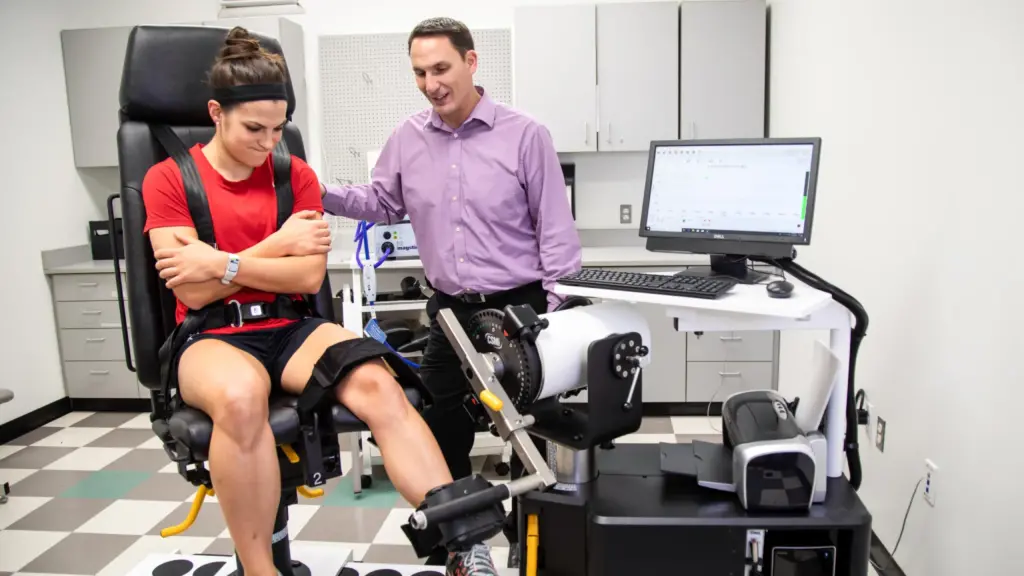
- Degree Level
- Doctorate
- Graduate
- Degrees Offered
- Doctor of Physical Therapy
- school/college
- College of Health Sciences
Transitional DPT Program
Arcadia University offers a Transitional Doctor of Physical Therapy (DPT) program for physical therapy students.
- Students are eligible to apply with U.S. PT license or international equivalent.
- Pricing schedule makes the program affordable and competitive.
- Students can start any semester, at one of 6 entry points (2 per semester), and most courses can be taken in any sequence.
- The program can be completed in 1-3 years.
- All tDPT courses are 2-credit, fully online courses with both synchronous and asynchronous components.
- Course waivers, based on experience documented in a portfolio, are possible for up to 6 credits.
- Students can take up to 3 courses before formal application and acceptance into the program.
- Non-degree seeking students can take up to 3 courses for credentialing.
- Students network and interact with nationally recognized faculty and peers.
- Arcadia’s Physical Therapy program is ranked among the top 10% of accredited programs in the nation by U.S. News and World Report.
Arcadia’s Transitional DPT Experience
The profession and practice of physical therapy is rapidly changing. The demands imposed upon a physical therapist today are very different from those of even five or 10 years ago. These demands often go beyond the formal education provided in more traditional entry-level programs. Therapists increasingly are required to justify their practice patterns based on research evidence, to take on consulting and supervisory roles, and to provide administrative expertise and leadership.
Offered completely online, this program gives practicing clinicians easy access to make their formal education congruent with students graduating from entry-level DPT programs. The program’s goal is to educate clinicians to achieve practice consistent with the American Physical Therapy Association (APTA) Vision. Graduates will function with a high degree of professionalism and possess the requisite knowledge, skills, and behaviors to practice physical therapy in a truly scientific manner (i.e., using evidence-based practice).
Graduates will demonstrate the ability to do the following:
- Solve clinical problems using evidence.
- Critically evaluate current literature and popular theories.
- Communicate professionally through scientific writing.
- Function as an effective teacher at multiple levels—with patients, students, peers, and the public.
- Lead others and advocate effectively (serve as a consultant or manager).
- Enhance skills required to be a lifelong independent learner.
This is a program for practicing professionals who want to learn from and interact with nationally recognized faculty and exceptional peers. The program is highly interactive and capitalizes on the wealth of knowledge clinicians bring with them.


